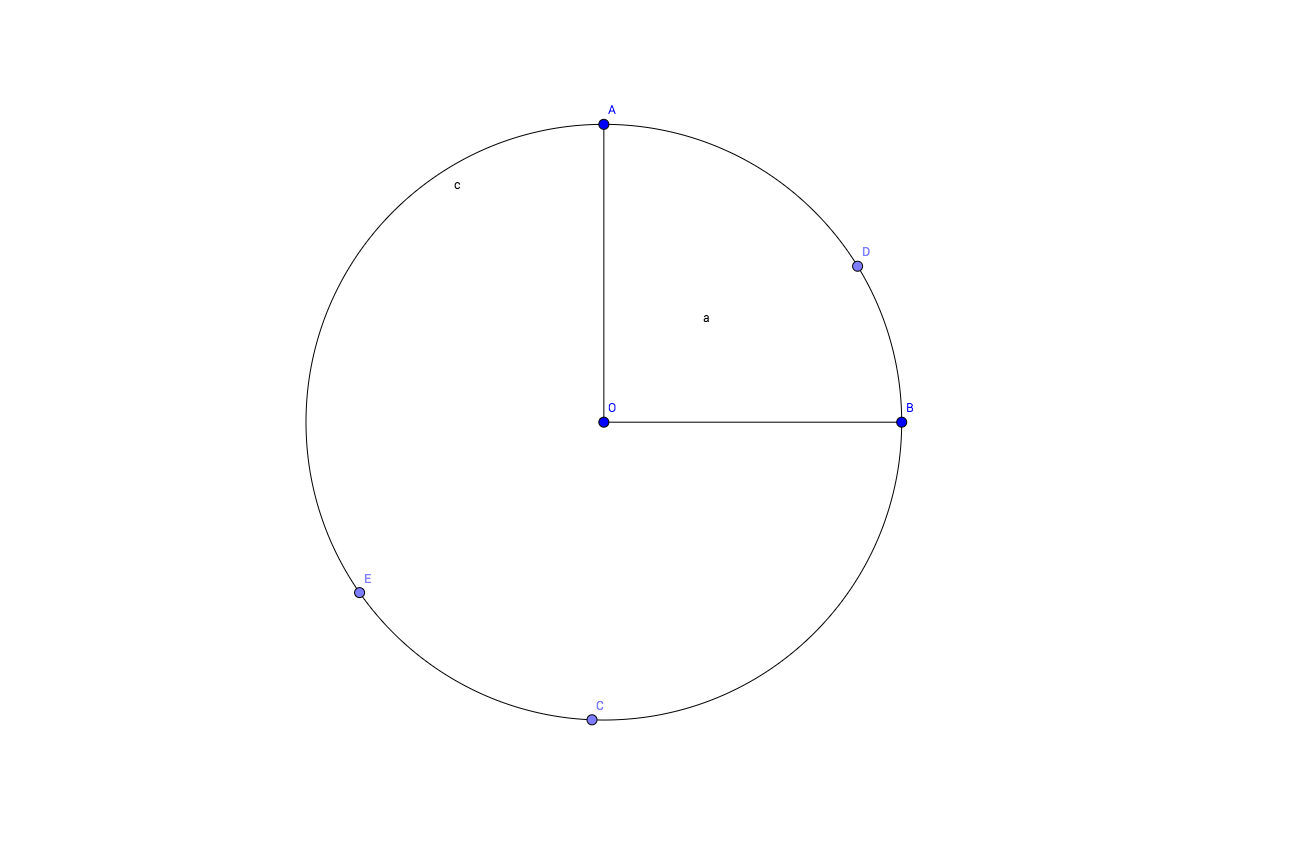Let ABC be a spherical triangle, where the spherical distance (or angle) AB is $\pi/2$ and $C\neq -A$. For $t\in[0,1]$, let $B(t)$ (resp. $C(t)$) be the only point on the segment $[AB]$ (resp. $[AC]$) such that $AB(t) = t AB$ (resp. $AC(t) = t AC$).
Question: Is it true that $B(t)C(t) \leq 2 BC$ for any $t\in [0,1]$?
The worst case seems to happen when $C$ is close to $-A$, so that $BC\simeq \pi/2$ but $C(t)$ goes in the direction opposite to $B$, so that at some point $B(t)C(t) = \pi$. (See the picture below, where D is that B(t) and E that C(t).)
For those who care, the question is related to my paper arXiv:1507.05485 where Lemma 15 is basically the question I ask here but the proof is wrong, as pointed out by a very diligent referee. I can fix the proof, but only with $B(t)C(t) \leq 3 BC$...

